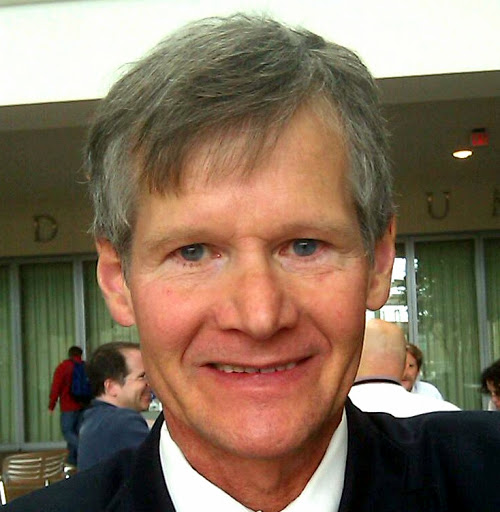Larry Mark Weisenthal
age ~78
from Huntington Beach, CA
- Also known as:
-
- Larry M Weisenthal
- Larry Dr Weisenthal
- Larry M Weiserth
- Lawrence M Weisenthal
- Larrymark Weisenthal
- Weisenthal Laurin
- Larry A
- Larry L
- Phone and address:
-
17031 Courtney Ln, Huntington Beach, CA 92649
7148467560
Larry Weisenthal Phones & Addresses
- 17031 Courtney Ln, Huntingtn Bch, CA 92649 • 7148467560
- Huntington Beach, CA
- Louisville, KY
- 17200 Newhope St, Fountain Valley, CA 92708
Work
-
Company:Weisenthal Cancer Group
-
Address:16512 Burke Ln, Huntington Beach, CA 92647
Education
-
School / High School:University of Mi Med Sch1975
Industries
Medical Practice
Medicine Doctors

Dr. Larry M Weisenthal - MD (Doctor of Medicine)
view sourceHospitals:
Weisenthal Cancer Group
16512 Burke Ln, Huntington Beach, CA 92647
Orange Coast Memorial Medical Center
9920 Talbert Avenue, Fountain Valley, CA 92708
16512 Burke Ln, Huntington Beach, CA 92647
Orange Coast Memorial Medical Center
9920 Talbert Avenue, Fountain Valley, CA 92708
Education:
Medical Schools
University of Mi Med Sch
Graduated: 1975
University of Mi Med Sch
Graduated: 1975

Larry M. Weisenthal
view sourceSpecialties:
Hematology/Oncology
Work:
Weisenthal Cancer Group
16512 Burke Ln, Huntington Beach, CA 92647
7145962100 (phone), 7145962110 (fax)
16512 Burke Ln, Huntington Beach, CA 92647
7145962100 (phone), 7145962110 (fax)
Education:
Medical School
University of Michigan Medical School
Graduated: 1975
University of Michigan Medical School
Graduated: 1975
Languages:
English
Description:
Dr. Weisenthal graduated from the University of Michigan Medical School in 1975. He works in Huntington Beach, CA and specializes in Hematology/Oncology.

Larry Mark Weisenthal
view sourceSpecialties:
Internal Medicine
Medical Oncology
Hematology & Oncology
Medical Oncology
Hematology & Oncology
Education:
University of Michigan Medical School (1975)
Name / Title
Company / Classification
Phones & Addresses
Managing
16512 Burke Lane, LLC
Real Estate Leasing
Real Estate Leasing
16512 Burke Ln, Huntington Beach, CA 92647
Larry Weisenthal MD,PHD
Oncology · Internist
Oncology · Internist
16512 Burke Ln, Huntington Beach, CA 92647
7145962100
7145962100
Weisenthal Cancer Group
Clinical Laboratory & Contract Research & Development · Medical Laboratories
Clinical Laboratory & Contract Research & Development · Medical Laboratories
16512 Burke Ln, Huntington Beach, CA 92647
7145962100, 7148933658
7145962100, 7148933658
Resumes
Us Patents
-
Microaggregates Including Endothelial Cells
view source -
US Patent:8192949, Jun 5, 2012
-
Filed:Dec 15, 2006
-
Appl. No.:11/639873
-
Inventors:Larry M. Weisenthal - Huntington Beach CA, US
-
International Classification:G01N 1/28
G01N 1/30
C12Q 1/00 -
US Classification:435 405, 435 4, 435 29
-
Abstract:Microaggregates which mimic the native environment of cells contained in biopsied tissue are used to assess and predict the effects of various treatments on the viability of cell types contained in the microaggregate.
-
Efficient Well Being Assessment And Improved Treatment Protocol
view source -
US Patent:8278033, Oct 2, 2012
-
Filed:May 22, 2009
-
Appl. No.:12/994105
-
Inventors:Larry Mark Weisenthal - Huntington Beach CA, US
-
International Classification:G01N 33/53
-
US Classification:435 4, 436518
-
Abstract:Methods to appraise general health and to assess the effectiveness of therapeutic agents are disclosed. These methods can be performed on blood samples or other bodily fluids and comprise effecting cell death of endothelial cells, staining the dead cells and observing them microscopically. In addition, the invention is directed to combination treatments for neoplastic diseases or other conditions characterized by unwanted angiogenesis by administering an antiangiogenesis agent while maintaining nontoxic levels of ethanol and/or DMSO in the blood.
-
Method To Detect Endothelial Cell Massive Calcium Accumulation Death
view source -
US Patent:8623613, Jan 7, 2014
-
Filed:Apr 13, 2011
-
Appl. No.:13/085856
-
Inventors:Larry M. Weisenthal - Huntington Beach CA, US
-
International Classification:C12Q 1/06
C12Q 1/04
G01N 1/30
G01N 33/48 -
US Classification:435 39, 435 405, 435 34
-
Abstract:Stains that are specific for calcium ion are used to assess and predict the effects of various treatments on the viability of cell types contained in a sample, wherein said stain detects endothelial cells that have massive calcium accumulation death.
-
Treatment Protocol
view source -
US Patent:20130011396, Jan 10, 2013
-
Filed:Sep 14, 2012
-
Appl. No.:13/620081
-
Inventors:Larry Mark WEISENTHAL - Huntington Beach CA, US
-
International Classification:A61K 31/045
A61K 31/10
A61P 9/00
A61K 39/395 -
US Classification:4241331, 514724, 514708
-
Abstract:Combination treatments with an antiangiogenesis agent and non-toxic blood levels of ethanol and/or DMSO are disclosed.
-
Method For Detecting Immune-Mediated Cytotoxicity
view source -
US Patent:49961454, Feb 26, 1991
-
Filed:Oct 27, 1987
-
Appl. No.:7/114085
-
Inventors:Larry M. Weisenthal - Huntington Beach CA
-
Assignee:Oncotech Incorporated - Irvine CA
-
International Classification:G01N 3353
G01N 33577
C12Q 128
C12Q 118 -
US Classification:435 723
-
Abstract:A method for detecting the sensitivity of tumor cells to immune effector substances by using an assay that distinguishes living tumor cells from dead cells in mixed populations of cells. Acquired resistance to immune effectors used in therapy may be determined and used to identify methods to circumvent such resistance using the method.
-
Immunopotentiating Protocol For Chemotherapy-Responsive Tumors
view source -
US Patent:51495279, Sep 22, 1992
-
Filed:Sep 18, 1990
-
Appl. No.:7/584272
-
Inventors:Larry M. Weisenthal - Huntington Beach CA
-
Assignee:Oncotech, Inc. - Irvine CA
-
International Classification:A61K 3702
-
US Classification:424 852
-
Abstract:Immunopotentiating compositions which are useful in causing tumor necrosis and/or regression in subjects who have previously received successful therapy which destroys tumors and stimulates cytotoxic macrophages are described. The immunopotentiators are administered at a time when formation of macrophages specifically cytotoxic for the tumor have been generated by previous therapy.
Classmates

Berkley High School, Berk...
view sourceGraduates:
Larry Weisenthal (1962-1965),
Lisbeth Singer (1969-1972),
Shellye Dale (1969-1972),
David Weisenthal (1963-1967),
Sue Todd (1965-1969)
Lisbeth Singer (1969-1972),
Shellye Dale (1969-1972),
David Weisenthal (1963-1967),
Sue Todd (1965-1969)
Googleplus

Larry Weisenthal
Tagline:
Http://medpedia.com/users/110
Youtube
Get Report for Larry Mark Weisenthal from Huntington Beach, CA, age ~78












